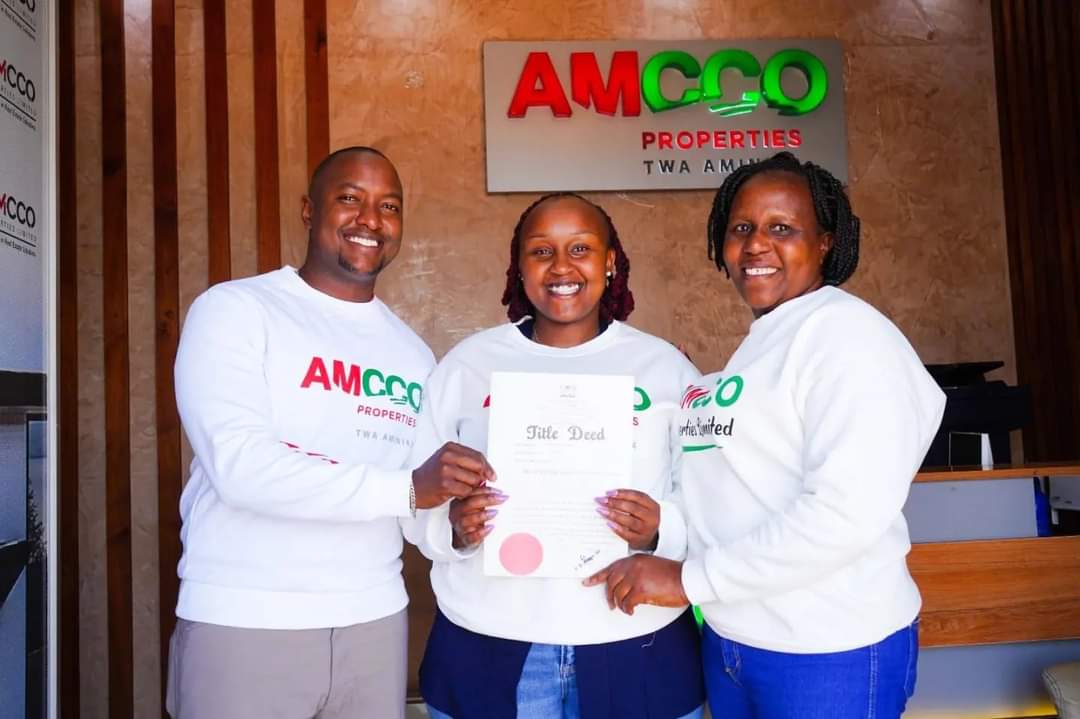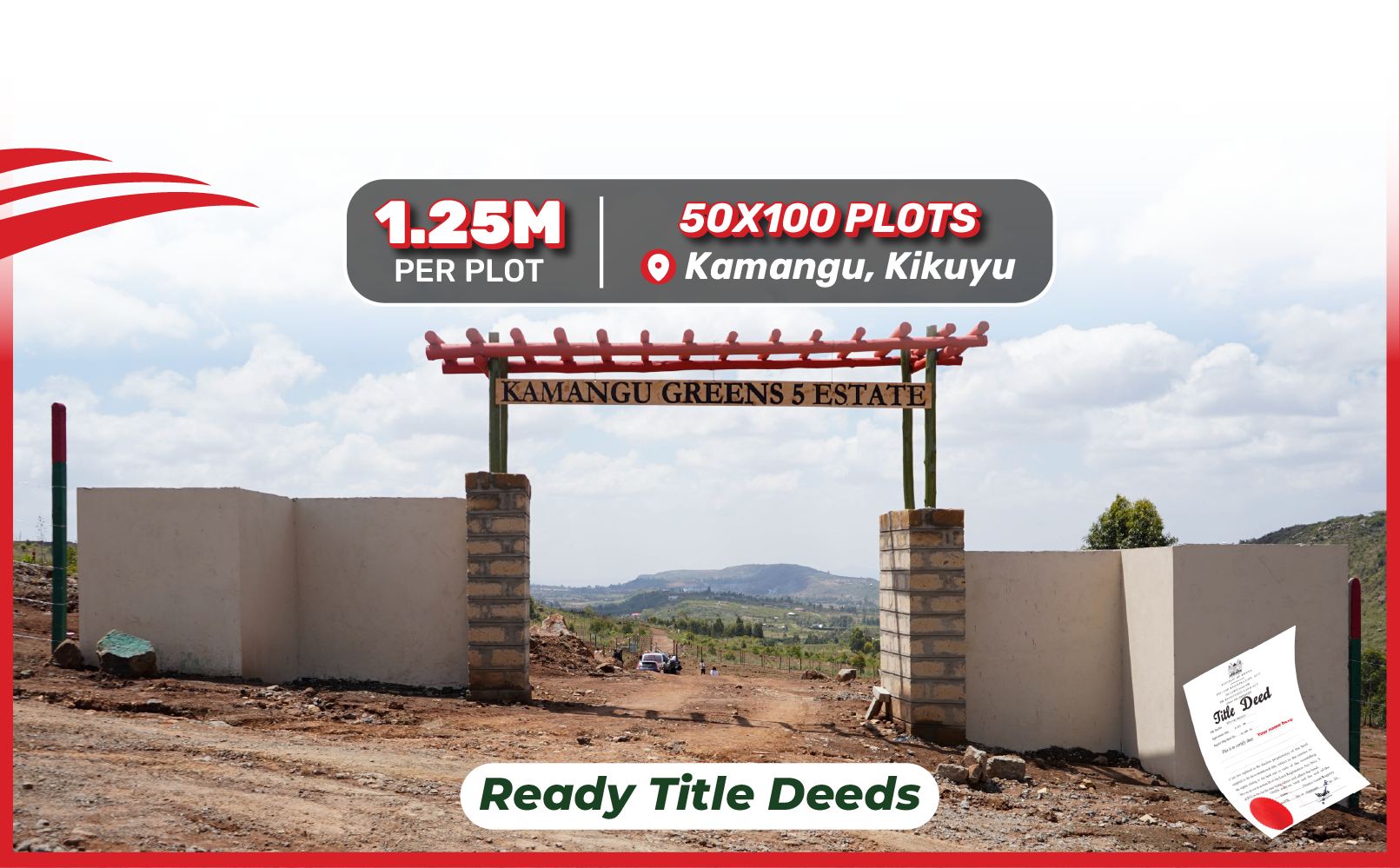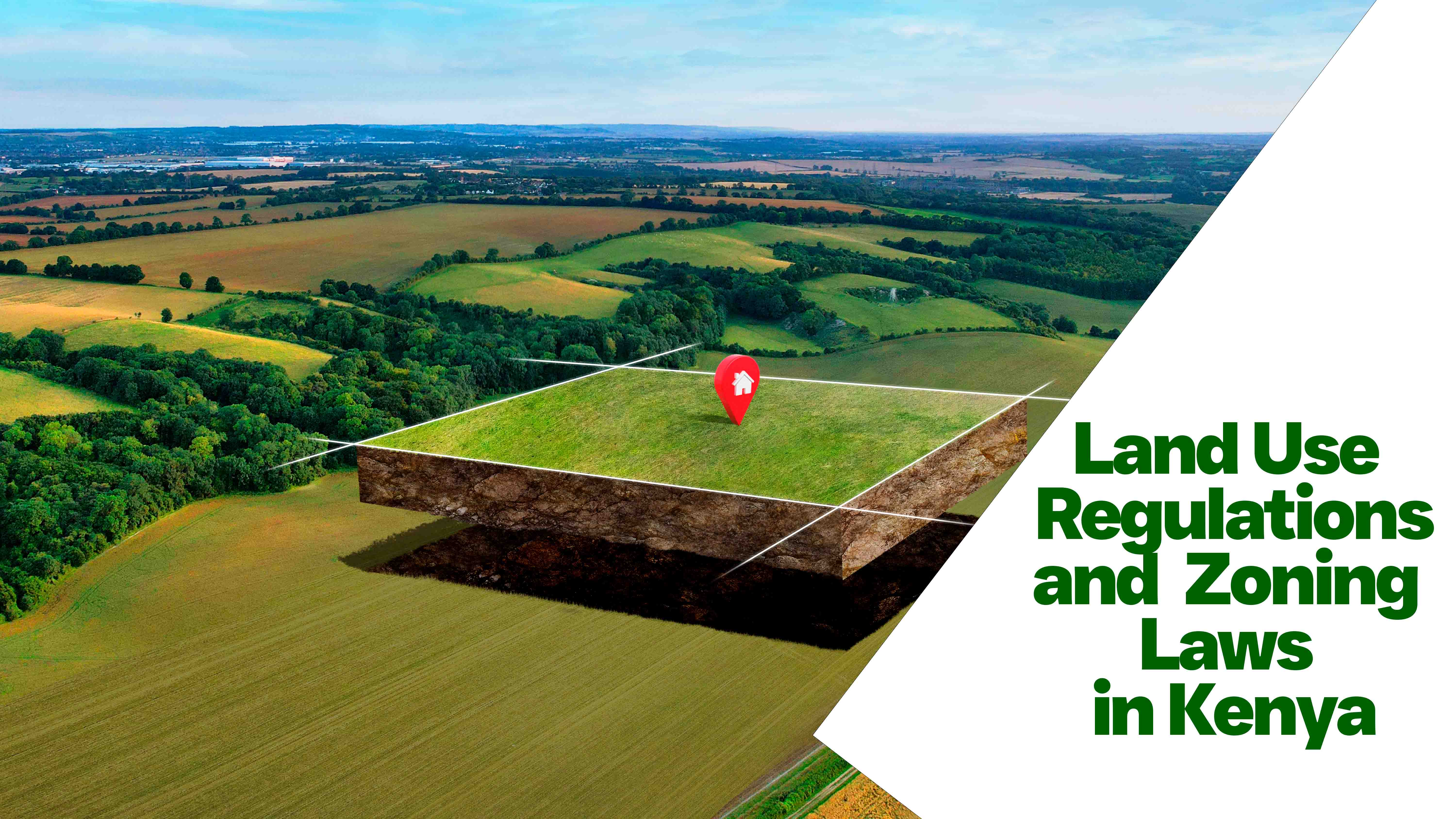Navigating Legalities: A Guide to Buying Land in Kenya with AMCCO Properties
Buying land and having your name written on its title deed as the bona fide owner is a fulfilling endeavour and a rewarding investment worth celebrating. However, this milestone can be easily curtailed by the legal complexities that often characterise the process of buying land in Kenya.

A single mistake can cost you a lifetime investment and take you back to square zero.
This is why Kenya's leading land-selling and real estate company, AMCCO Properties Limited, considers it extremely important and necessary to enlighten clients on easy but crucial legal steps to follow when purchasing land in Kenya.
Here are some steps you should consider to navigate this complex process easily.
1. Background check
Start by undertaking a background check on the person or firm selling the parcel of land you are interested in. If it's a real estate company, check its physical address, confirm if it is registered, look at reviews, and contact people who have transacted with the company before.
You can also visit the company's physical offices to confirm its existence and assess how they handle clients.
For instance, if dealing with us, all our contact details are available at https://amccopropertiesltd.co.ke
Once you are done checking and verifying the authenticity of the seller, the next step is to conduct thorough research on the status of the land you are interested in.
You will be required to look at the history of ownership of that particular land.
Ownership in this regard can be viewed in four broad categories.
Public land: This is property owned by the government and cannot be sold to an individual. If anything, this parcel of land can only be leased for a specific period of time.
Community land: This is a property owned by a community residing in a particular place. Some communities restrict the sale of this land, while others allow it, with priority given to members of the community.
Personal land: Sometimes referred to as private land. It is owned by an individual or a group of group of persons or firms. This can be done by the owner(s) if they wish.
Trustee land: This is a parcel of land owned by a community and regulated by the government.
2. Check if there are existing legal disputes
This is a very important stage that a buyer cannot afford to overlook. A parcel of land that has an existing legal dispute should be avoided at all costs. No one wants to invest their money in a property whose ownership is contested. It's akin to gambling with your lifetime investment, and it might cost you at long last.
Conduct due diligence and make an informed decision.
At AMCCO, we help our clients verify all these crucial details before entering into a transactional contract.
3. Verify the authenticity of the title deed
This is a very crucial stage that requires the buyer to be thorough and extra vigilant. In the wake of fake title deeds, working with relevant government institutions such as the Ministry of Lands can help dodge the bullet.
Look at the land's boundaries and assess if any restrictions, caveats or mortgages are associated with the title. Working with professionals such as lawyers and experienced surveyors can help you navigate this hurdle.
Lawyers can help review all legal documents and give sound advice on what to do and what not to do. Ensure you are dealing with a genuine, registered lawyer with knowledge and experience in property law. You can verify this by simply checking the details of the lawyer you are dealing with from the Law Society of Kenya website.
On the other hand, a qualified land surveyor will help you determine the size of the land you are buying, the boundaries around it and whether there is space for expansion. A surveyor also ensures that the information provided in the title deed matches what is on the ground.
Before making payment, verify the status of the land rates and associated taxes. If there are any unpaid charges, ensure they are cleared or agree on how they will be cleared before investing your money in the property.
4. Environmental compliance policies
Ensure compliance with environmental regulations and obtain any necessary permits or clearances.
5. Payment and documentation
Ensure that all payment transactions are conducted through legitimate channels, such as bank transfers or checks, and obtain proper documentation for all financial transactions. Keep records of all agreements, receipts, and correspondence related to the land purchase.
Ensure you have an advocate and a reliable witness involved at every stage of the transaction.
Ensure all the documents are properly signed by the parties involved, including witnesses from both sides.
6. Legal safeguards and dispute resolution mechanisms
This is another crucial stage that should be overlooked. It's an extra layer of caution that protects your investment from disputes that may arise in the future.
Ensure you include legal safeguards such as clauses for title deed warranties, dispute resolution mechanisms, and remedies for breach of contract.
These are some of the key steps you should follow to navigate the complexities of buying land in Kenya. At AMCCO, we walk with our clients at every stage of the process to ensure all the verification requirements and legal safeguards to protect the property for posterity are entered accurately and conscientiously.



